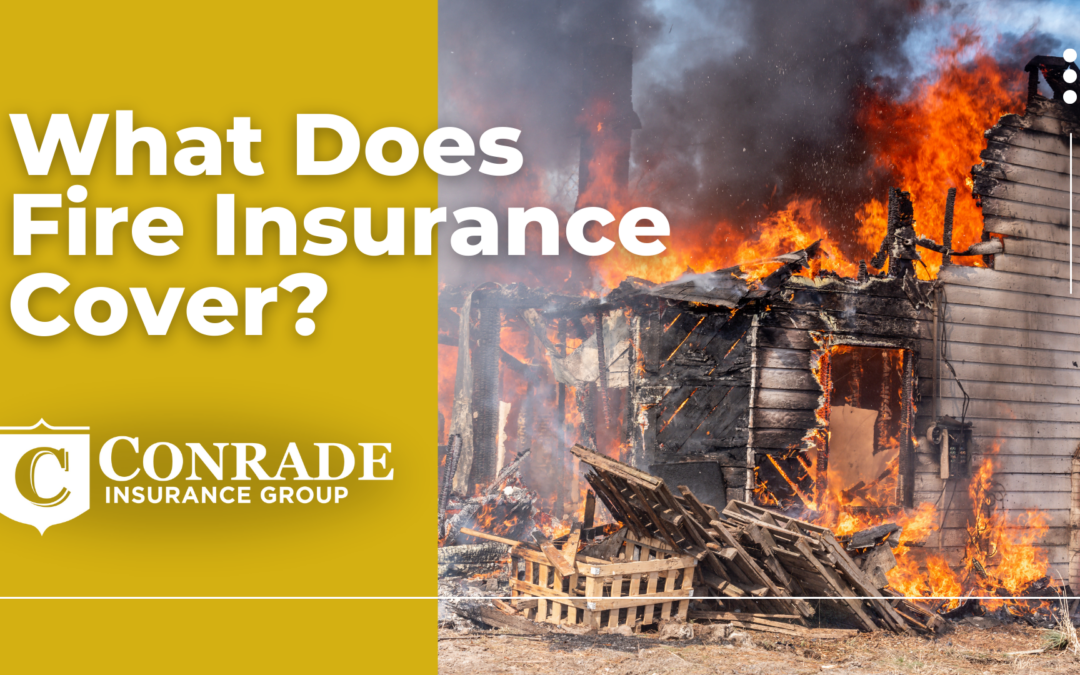Home insurance policies cover several catastrophic risks, including fires and lightning. Most even cover wildfires. Yet you might wonder what to expect from your insurance company if your house is severely damaged, and whether your fire insurance coverage is sufficient.
What types of fires are covered?
All policies cover kitchen fires, electrical fires and fire resulting from lightning. A fire caused by an explosion, an oil spill or a piece of burning debris falling from the sky would also be covered. And if you managed to contain and put out the fire but your property was damaged by the resulting toxic smoke, that damage would be covered, too.
Wildfires are usually covered, though in California and other high-risk areas, coverage may be limited or hard to find. Arson, when a person willfully causes a fire, is also covered. That’s provided the fire wasn’t started by a member of your family or anyone else mentioned on the policy.
Certain events are excluded from every policy. They include war, terrorism, nuclear explosions and earthquakes, though you can add an earthquake coverage rider. If your home is vacant for an extended period, usually 30 days, fires are excluded. You can remedy this by purchasing a vacant home endorsement or policy.
What to do before and during a fire
Prevention is the first step in keeping your family safe from a fire. Make sure you have working fire and carbon monoxide detectors throughout the house and at least one fire extinguisher. The latter will enable you to put out a kitchen fire quickly or at least prevent it from spreading.
When your fire alarm goes off, grab the fire extinguisher and try to put out the fire. If you can’t extinguish the fire, evacuate the house immediately and contact 911. In the event your usual escape route is obstructed, locate an alternative exit and crawl low to the ground to minimize smoke inhalation. If you are unable to exit the room you are in, close all doors, place a damp towel beneath the door, and seal any vents to prevent smoke intrusion. Then wait for first responders to arrive.
Do not waste time gathering your valuables. Fires can spread quickly and cut off your escape route. Once you are out, stay out and keep a safe distance. Regroup and encourage everyone to remain calm. Once firefighters are on the scene, you can call your insurance company to file a claim.
What’s covered
Home insurance will pay for damages resulting from a covered fire, up to the coverage limit. Most homeowners policies cover the following:
- Dwelling (homeowners) covers damages resulting from the fire or caused by firefighters while putting it out, including debris removal. The coverage includes walls, ceilings, floors, embedded appliances, electrical and plumbing systems, and attached structures such as a garage.
- Other structures (homeowners) covers damage to sheds, garages, fences, trees and your lawn.
- Improvements (condo owner) covers renovations and upgrades you’ve made to your condo unit. Damage to the building is covered under the condo association’s policy.
- Personal property covers damage to all items you own that are damaged or beyond repair. You may need a rider for valuables.
- Liability covers you if the fire originated in your home and damaged your neighbor’s property. Your liability coverage will pay for lawsuits and settlements. Liability covers any situation, anywhere in the world where you are found liable for damages.
Check your policy to see whether you have actual cash value or replacement cost coverage. Actual cash value factors in depreciation. The older something is, the greater the depreciation or loss of value. The cost to rebuild your home or replace your lost valuables may be much higher than the actual cash value.
Replacement cost coverage means your home and lost items will be replaced with new ones of equal value. You can even get enhanced replacement cost value in case your cost to rebuild is much higher than anticipated due to ordinance laws or other constraints. You can expect to pay more for replacement cost coverage.
Contact your Conrade agent
As you can see, a standard home insurance policy provides a lot of coverage for a major fire. Your needs may be different or more extensive than the average household’s. Call your insurance professional to assess your needs and ask any questions you may have about your coverage, replacement cost coverage or home insurance endorsements.

